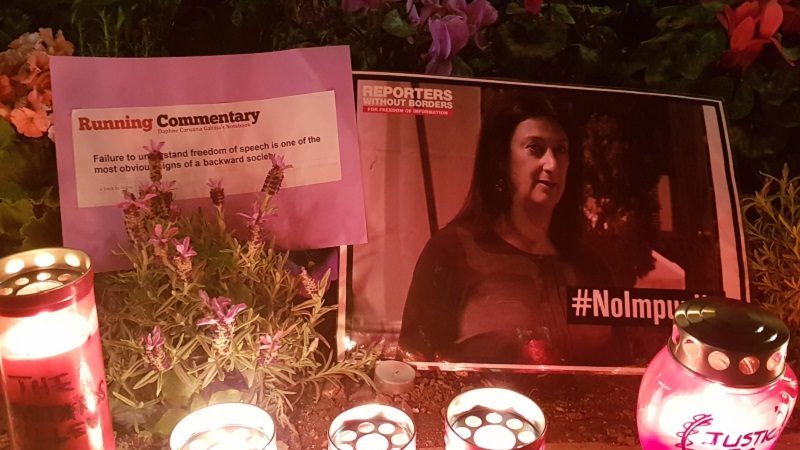The act of murdering a journalist always originates from verbal abuse that was not checked, a Slovak journalist told the European Parliament’s Civil Liberties Committee debating the rule of law and the safety of journalists in Europe.
The murders of Slovak journalist Jan Kuciak and Maltese journalist Daphne Caruana Galizia were at the centre of the debate that brought forward journalists’ concerns.
David Matúš, former journalist at Slovak public television RTVS, told the Committee that hateful comments against journalists should always be nipped in the bud.
“Murder always starts with verbal spats,” he said. Hateful comments should never be allowed as “words are weapons too”.
Matúš spoke about the situation of “fear” and “mistrust” in Slovakia that was created when experienced journalists were sacked from the State broadcaster and replaced by former political spokesmen.
He also described the situation in Malta where journalists were threatened as “terrible” and “desperately serious,” and the importance of civil society defending journalists and understanding the value of unbiased journalism.
“We are determined to finish the stories of our colleagues who were silenced, but we still need society to stand up for us. But it seems that society doesn’t understand the value of journalists – it’s like once we have Facebook, we don’t need journalists anymore,” he said.
PN MEP Roberta Metsola asked Tom Gibson, Committee to Protect Journalists, and Laurent Richard, Executive Director of Forbidden Stories, to comment about the fact that a government minister had been in contact with alleged “assassins” of Caruana Galizia especially in light of the fact that nothing had been said to deny those allegations.
She was referring to the Economy Minister Chris Cardona meeting one of the accused days before they were arrested in the Caruana Galizia investigation.
Richard said it was an important element that was not sufficiently investigated by the Maltese authorities. He described the situation in Malta as the “opposite” of a democracy. The Maltese authorities needed to be transparent and shed light on matters of public interest or suspicion of corruption, he said.
As opposed to France, where a minister resigned, in Malta “instead of investigating the persons concerned, the journalists were threatened”. An attempt was made to hush Caruana Galiza through legal cases that were filed abroad.
Echoing the complaints made by Maltese journalists on the ground for years, Richard said they were met with “total silence” when speaking to the Maltese authorities. “It is quite rare for us to be faced with such a silence”.
Gibson pointed out that Caruana Galizia’s murder had made it made it more difficult for journalists to work in Malta and for people to come forward with information.












